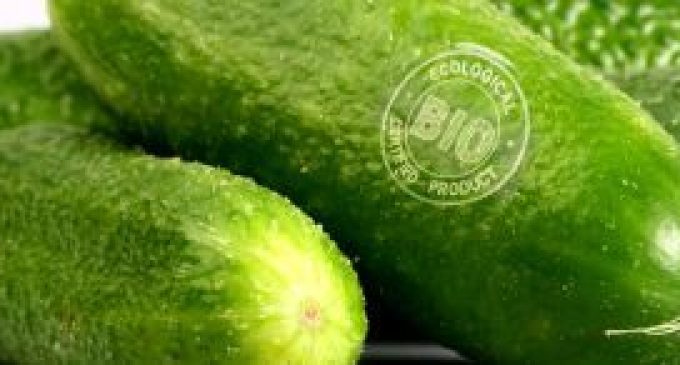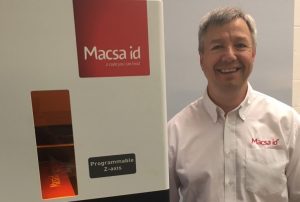Increasing Demand For Laser Coders From Fruit and Vegetable Producers

Macsa ID UK, a division of Barcelona-based laser coding, marking and scoring systems manufacturer, Macsa ID, is reporting increasing demand for laser coding technology from fruit and vegetable producers that require consistent quality and fast and accurate identification of production batches in the event of a product recall. Macsa ID UK meets the diverse requirements of the fresh produce sector by offering a range of laser coding technologies specially designed to handle different substrates and materials. Whilst ink jet coding systems have typically been used by producers, processors and packers, laser coding is becoming increasingly popular due to its versatility, permanence, cleanliness and durability, as well as environmental benefits.
Macsa ID UK’s laser coders have been developed to ensure the traceability of fruit and vegetables from ‘farm to fork’, to properly track and verify every step of the distribution of produce and identify their origin if necessary.
The company’s systems are suitable for a wide range of applications including marking on fruit and vegetable trays and processes such as cutting or micro perforation of plastic film to ensure the circulation of air inside fruit containers such as strawberries.
Macsa ID UK’s powerful HPD CO2 lasers offer high performance and optimum definition, and are mainly used in packaging, pre-cutting and packaging micro-perforation, as well as high definition coding.
Pre-cutting laser systems are used to pre-cut and cut films in flexible packaging production. Micro perforation laser systems perforate plastic film for fresh foods and make the packaging porous allowing products to continue maturing and ultimately extend shelf life.
Laser marking is also opening up new opportunities for the fresh produce industry such as coding directly on to a product’s skin. The origin of the ‘natural mark’ concept (direct marking on the product) has arisen due to the interest in returning to the sale of products in bulk or by units.
It also leads to savings in primary packaging and represents a sustainable coding system by not using consumables or materials. In addition, this technique enhances brand impact and on-shelf appeal.
In order to meet these requirements, the most suitable coding system is undoubtedly the laser. Coding on to fruit and vegetable skin needs a system that guarantees the permanence of the code yet also reinforces the product’s quality.
With the Macsa ID UK SPA CB 30 HPD laser system, a high definition and legible mark is obtained, even if the product’s skin is not smooth. For example, the whitish marking on the green of a cucumber is achieved by applying 100% power and at a cadence rate appropriate to the marking lines of this type of product.
Traditional adhesive labels, which often fall off due to friction or movement, are not needed which helps reduce plastic, energy and CO2 emissions. In addition, lasers also allow larger printing surfaces with more space for information.
Laser technology is widely recognised to generate just 1% of the carbon emissions needed to produce a label of a similar size, with less paper, ink and glue, as well as the energy used in cutting labels and associated transport or warehousing costs.
Neil Greatorex, Managing Director at Macsa ID UK, comments: “Laser coding offers low lifetime cost of ownership for fruit and vegetable producers as it is completely safe, enhances traceability and is more cost effective than labelling. The latest laser machines are robust, accurate, reliable and efficient, and also offer major environmental benefits for food industry companies by reducing total energy consumption.”
For further information visit www.macsa.co.uk.



































